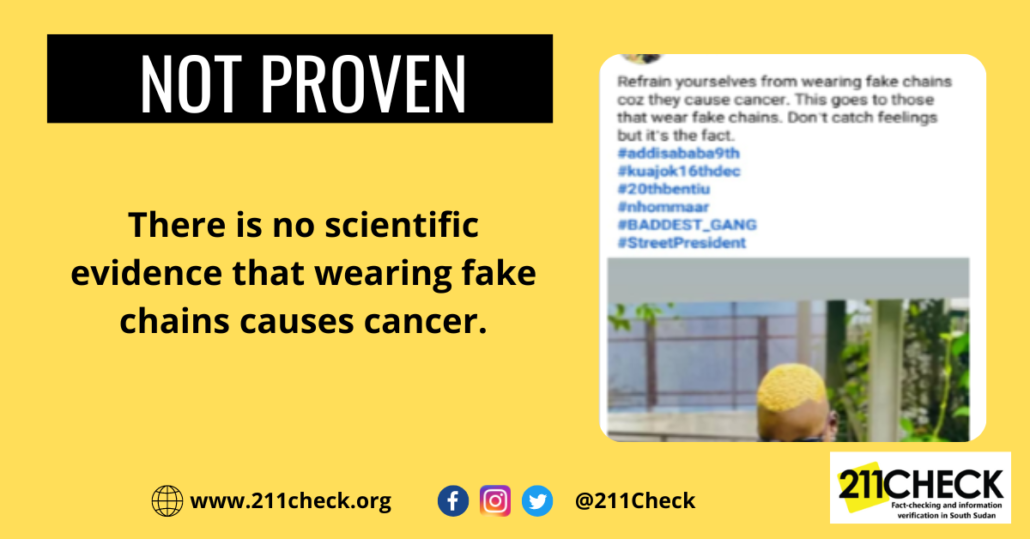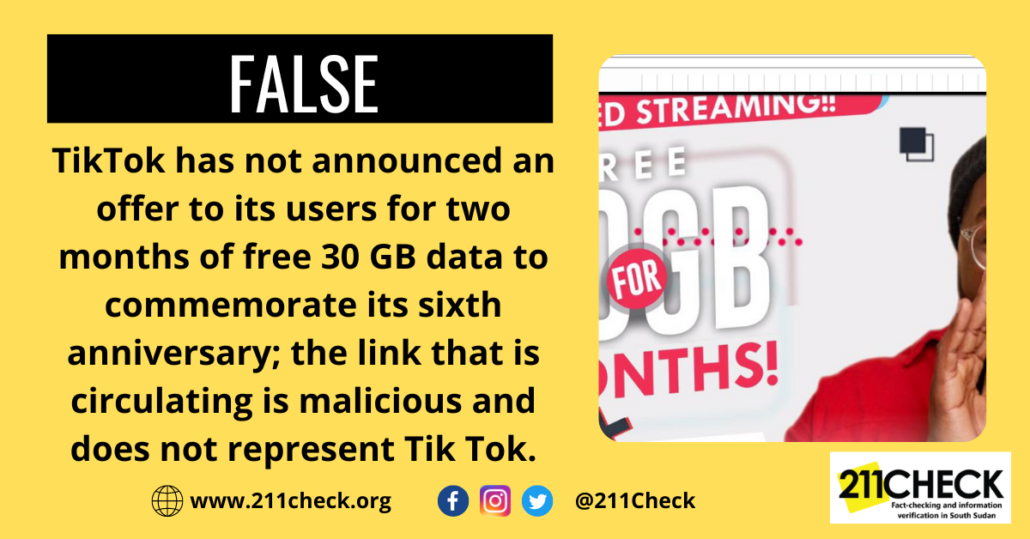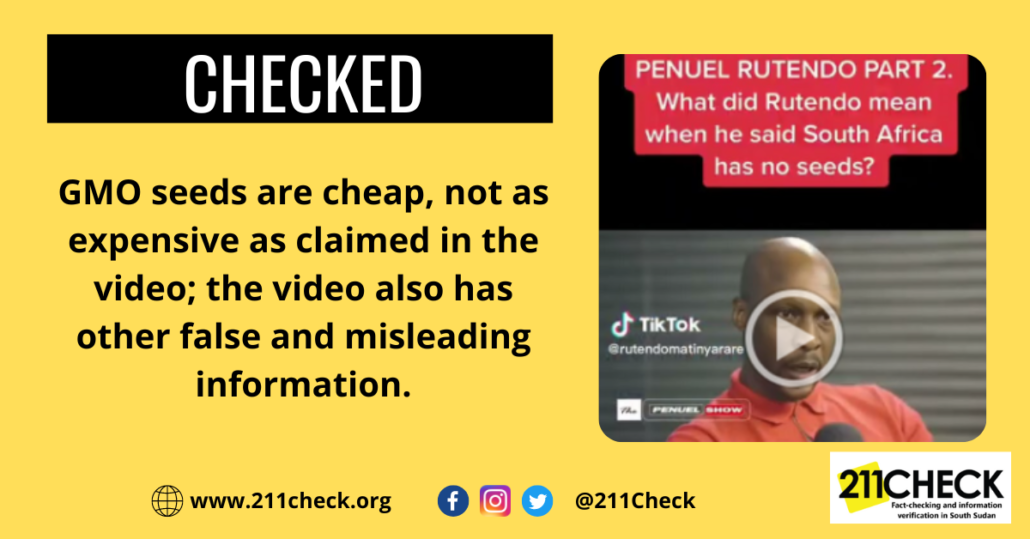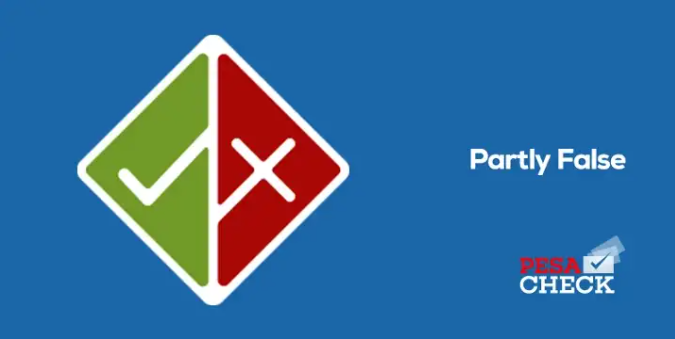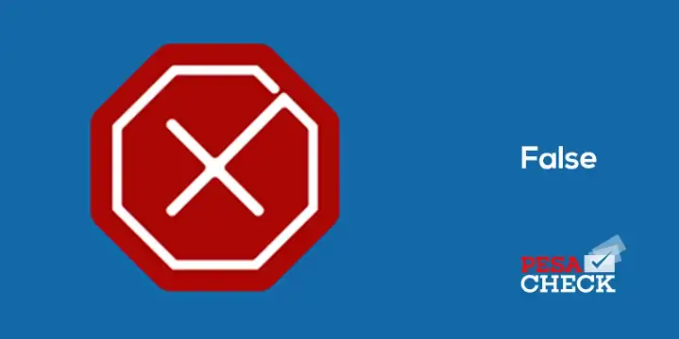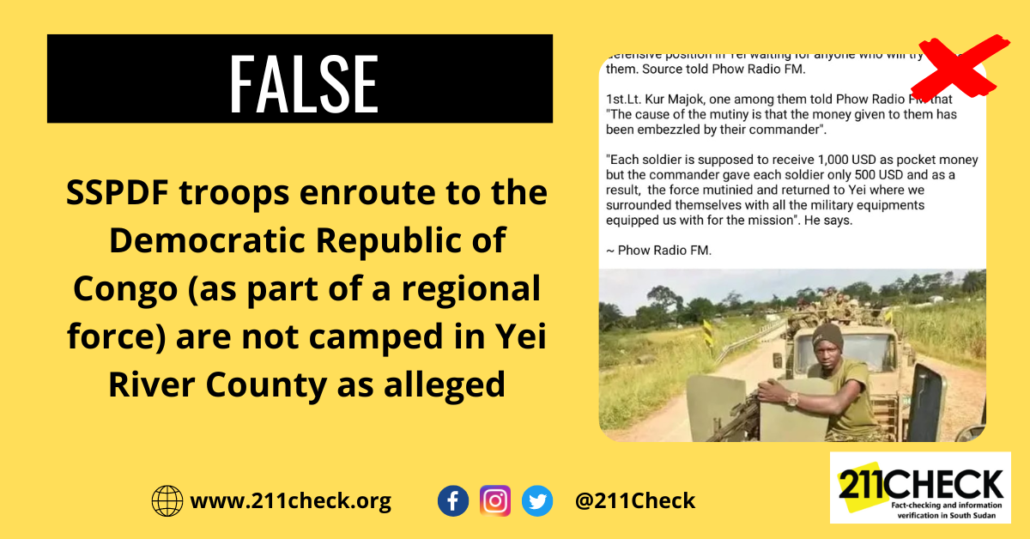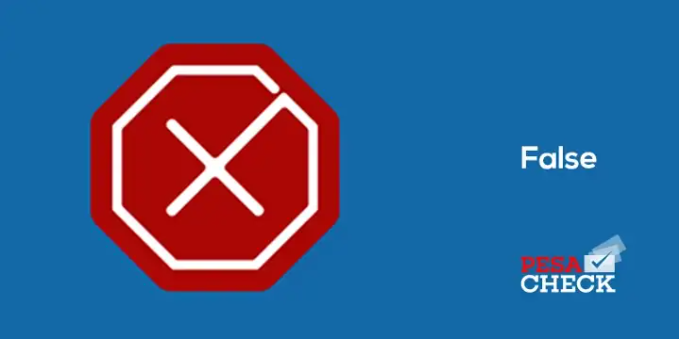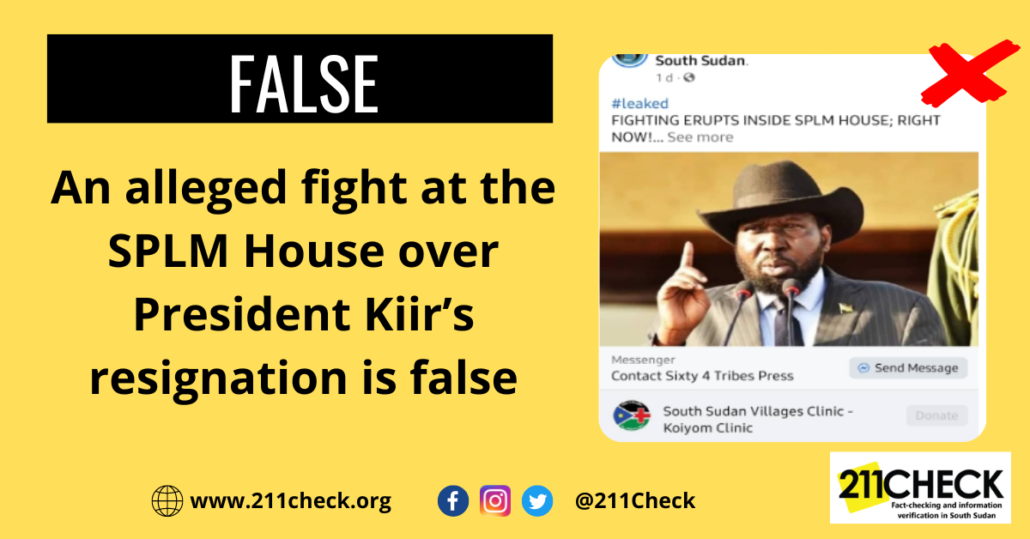Fact-check: Is it possible that wearing fake chains will cause cancer?
There is no scientific evidence that wearing fake chains causes cancer.
Writer: Beatrice Amude Paulino
On 5 December 2022, Max Jay, a South Sudanese singer, posted on his Facebook page that fake chains or necklaces can cause cancer. He does not give any detail on his claim on how it can cause cancer or when or maybe if it is used for how long.
Max Jay wrote, “Refrain yourself from wearing fake chains because they cause cancer.”
Fake chains, also known as counterfeit chains, are imitation chains made to look like genuine products but not of the same quality or materials. They are frequently sold at a lower price than the genuine product and are intended to deceive consumers into believing they are purchasing the genuine article. These forged chains can be found in various products, including jewellery, fashion accessories, and even bicycles. When purchasing products, it is critical to be aware of these fake chains because they can be of lower quality and may not last as long as an authentic product.
211 Check looks carefully at what doctors have to say about fake jewellery:
The Centers for Disease Control also said, “Cheap jewellery may cause sickness, and a high level of toxic chemicals are always found in the fake jewellery.”
What metal is associated with cancer?
Arsenic, cadmium, chromium, and nickel have been classified as group 1 carcinogens by the International Agency for Cancer Research and are commercially used. To understand the toxicity of these compounds, the International Agency for Cancer Research used pathway analysis.
The safest jewellery is made of:
Gold: according to the Centers for Disease Control (CDC), “Gold is not Poison.”
Niobium: is a type of metal that is pure, it does not react to the skin, and it is the safest metal for people with allergies.
Silver: is not harmful to humans, according to the Centers for Disease Control.
Conclusion:
No scientific evidence suggests that fake chains or counterfeit jewellery can cause cancer. However, it is important to note that some fake jewellery may be made with low-quality materials or chemicals that can harm the skin or the environment. For example, some counterfeit jewellery may contain lead, which can be toxic if ingested or if it comes into contact with the skin. Some fake jewellery may be made with cheap metals that can cause an allergic reaction or rash. Therefore, it is important to be cautious when purchasing fake jewellery and to be aware that it may not be as safe or durable as authentic jewellery.
Fake jewellery pieces are affordable, stylish, trendy, and unique because you get pieces that match your personality. Still, scientific evidence indicates that long-term exposure to some metallic such as cadmium compounds induces different forms of cancer.
This fact-check was published by 211 Check with support from Code for Africa’s PesaCheck and the African Fact-Checking Alliance.

